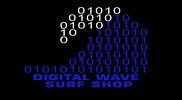 Loading... Please wait...
Loading... Please wait...Cybersecurity Software
When seeking the advice of other internet surfers on the difference between cybersecurity (including anti-virus) software programs and choosing the best one, internet surfers often run into a wide array of conflicting opinions. Internet surfers tend to either swear by certain programs or swear off others. Those who swear a certain program is the best tend to do so because they have never had the misfortune of having their internet surfboards (computers) compromised while using it. Those who swear off others tend to do so because they ran into a problem with their computers while using them, such as a malware infection, an adware infection, or OS troubles. Because the circumstances under which computers become compromised can vary widely, it is hard for internets surfer to rely solely on anecdotal evidence in selecting the best cybersecurity (and anti-virus) program for themselves.
It's usually better to seek out the advice of reviewers on tech, computer, and gadget blogs and cybersecurity specialists from independent testing companies. These reviewers and specialists employ more stringent and uniform tests to compare the effectiveness of different cybersecurity programs. If internet surfers wish to delve into the details of these tests and the effective difference between various cybersecurity programs, we can recommend a few sources. For the latest reviews and benchmark tests of broad internet security suites, check out these links at PCWorld, PCMag, AV-Test, and AV-Comparatives. For the latest reviews and tests of narrower anti-virus programs, visit PCMag, AV-Test, AV-Comparatives, and Dennis Technology Labs.
But even scientific testing to discern the effective difference between various cybersecurity programs can result in divergent conclusions. Results may be skewed by differences between the kinds of malware challenges to which programs are exposed as well as the features being tested (malware detection vs malware clean-up vs computer performance.)
The fact of the matter is that the most popular cybersecurity programs tend to perform at around the same level of effectiveness. The basic difference between them is that each tends to perform one or another aspect of cybersecurity slightly better than the others. Choosing between the leading cybersecurity programs, therefore, is mostly a matter of personal preference.
The more pressing question for internet surfers tends to be which leading brand cybersecurity suite to choose. In other words, how much cybersecurity do internet surfers feel that they need? If Kaspersky is an internet surfer's personal preference, they can choose between Kaspersky Anti-Virus, Kaspersky Internet Security, and Kaspersky PURE 3.0 Total Security. Presumably used in conjunction with other internet security features (like a firewall) already on a computer, the Anti-Virus program warns about malicious websites, blocks fraudulent websites, scans email attachments and website downloads for malware, monitors computers for OS and application vulnerabilities, scans computers for infections, and cleans up infections. In addition to the anti-virus program, the Internet Security suite comes with a two-way firewall, parental controls, and "Safe Money" technology to secure online financial transactions. ("Safe Money" is advanced anti-phishing technology that verifies that the website where a financial transaction occurs is real, the server is authentic, and the computer is secure by blocking fake windows, screenshots, and keylogging.) The Total Security suite includes all the features of the anti-virus program and internet security suite, and it adds remote parental controls, a password manager, automatic back-ups, encryption tools, and a 2GB cloud back-up option through Dropbox. All Kaspersky programs come with technical support via phone, email, and online chat.
McAfee offers a similar line of cybersecurity software, including McAfee Anti-Virus Plus, McAfee Internet Security, and McAfee Total Protection. McAfee's Anti-Virus Plus program does all the typical work of an anti-virus program, but it also comes with bonus features such as a two-way firewall, network intrusion monitoring (it shows all the devices on a home network), "McAfee QuickClean" (deletes unnecessary files), and "McAfee Shredder" (permanently destroys sensitive files.) Its Internet Security suite includes all the features of the Anti-Virus Plus program, and it adds a spam and malicious email filter (blocks unwanted emails from an inbox) and parental controls. Its Total Protection suite includes all of the above, and it adds encryption tools and social network virus protection. All McAfee programs come with technical support via phone, email, and online chat.
Norton's cybersecurity software line includes Norton Anti-Virus, Norton Internet Security, and Norton 360. Though it doesn't have a firewall, Norton's Anti-Virus program has all the expected anti-virus features, but also includes network intrusion monitoring, a password manager, and Facebook anti-virus scanning. Its Internet Security suite incorporates the features of its anti-virus program, but adds a two-way firewall, spam and dangerous email blocking, parental controls, and pc maintenance tools. Its 360 suite includes all of the above, and it adds local and online back-ups and extra pc maintenance tools. All Norton programs provide phone, email, and online chat technical support.
